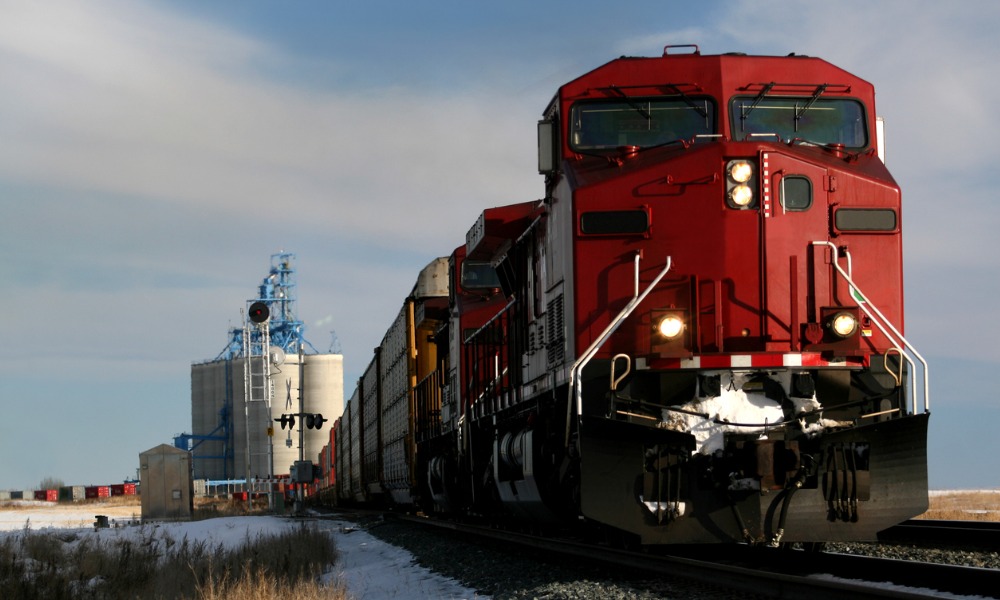Canada's major railways lock out workers, triggering nationwide freight disruption amid stalled talks

Negotiations resumed on Thursday after Canada’s two largest railways, Canadian National Railway Co. (CN) and Canadian Pacific Kansas City Ltd. (CPKC), locked out their employees just after midnight.
This action triggered an unprecedented shutdown of freight traffic across the country, according to The Toronto Star.
The shutdown, which followed months of increasingly bitter negotiations, brought shipments at CN and CPKC to a standstill, threatening to disrupt supply chains already strained by pandemic-related issues and a previous port strike.
Rail workers from Halifax to Vancouver quickly set up picket lines on Thursday morning. Demonstrations also took place outside CN’s headquarters in Montreal and CPKC’s head office in Calgary, with sign-toting employees making their presence known.
Accusations of not negotiating seriously flew from both sides. The railways pushed for binding arbitration, a move the Teamsters Canada Rail Conference union firmly rejected.
Teamsters Canada president François Laporte emphasized the union's stance, stating, “We believe that this thing has to be settled at the bargaining table.” He added that the union does not support allowing a third party to determine the working conditions for the next several years.
The union has accused the companies of trying to weaken protections related to rest periods and scheduling. Additionally, CN proposed a “relocation scheme” that would require some employees to temporarily move to distant locations to address labour shortages.
Laporte criticized these moves, saying, “They want to get rid of language that would put our health and safety and lifestyle in jeopardy.”
In response, CN stated that it has negotiated in good faith over the past nine months, offering better pay, improved rest periods, and more predictable schedules.
CN claimed that the Teamsters have not demonstrated any urgency or willingness to reach a deal that benefits employees, the company, and the economy.
The shutdown's impact extended beyond freight traffic, affecting over 32,000 commuters in Toronto, Montreal, and Vancouver, who rely on CPKC-owned tracks. With 80 locked-out traffic controllers unavailable to dispatch trains, passenger services on these lines were also disrupted.
Ontario Premier Doug Ford voiced his concerns on X, highlighting the growing costs to workers, transit users, and businesses across the country due to the rail shutdown.
Industry groups and government officials have increased pressure to resolve the impasse, with business groups urging Ottawa to impose binding arbitration and prevent further strikes and lockouts.
Canadian Chamber of Commerce chief executive Perrin Beatty called for immediate government intervention, arguing that Ottawa could have averted the shutdown but chose not to.
The Railway Association of Canada estimates that railways ship about $1bn in goods daily. Moody’s has warned that the work stoppage could cost the Canadian economy $341m per day, with agriculture, forestry, and manufacturing among the sectors most affected.
The Teamsters represent 6,000 CN workers and 3,300 CPKC workers. Typically, CN and CPKC negotiate new deals with their employees a year apart, but in 2022, CN requested a yearlong extension to the current collective agreement, aligning the bargaining periods for both companies.
Prime Minister Justin Trudeau urged both sides to reach an agreement at the bargaining table, acknowledging the concerns of Canadians.
Meanwhile, NDP Leader Jagmeet Singh warned that the party’s confidence-and-supply agreement with the Liberal party could be in jeopardy if the government introduces back-to-work legislation.
CN noted that engineers earn an average of $150,000 annually, while conductors, responsible for placing cars and loading cargo, earn $121,000 before benefits. Both roles involve working about 160 days a year, often in challenging conditions.
CPKC indicated that its employees earn similar, though slightly lower, amounts. The company has sought a three-year contract maintaining the status quo but offering wage increases above inflation.
The shutdown's effects have also been felt outside Canada. US railways have had to turn away Canada-bound shipments, and Canadian ports fear congestion as containers remain unmoved, potentially forcing some carriers to reroute to US terminals.



